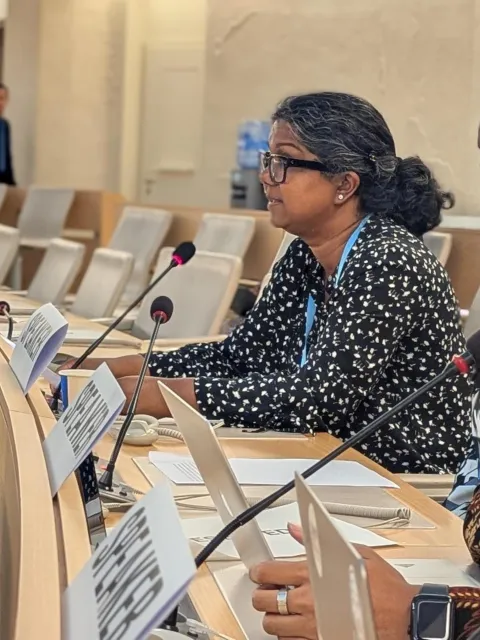Fake news: a threat to public health
Today is April Fool’s Day, and humour in the form of fake news can be an antidote to anxiety - but spreading false news on diseases like cancer and the coronavirus is no longer funny when it endangers lives.

False and misleading medical information about a range of diseases have been circulating widely on social media for several years, posing a potential threat to public health as it spreads rapidly and effectively. These disinformation campaigns can be deliberate and require collective and individual efforts to avoid the dangers they represent. In other cases, the spread of misleading advice is simply due to the fact that people do not know where to find correct data and facts. Now with the coronavirus pandemic, the dissemination of fake news and the associated risks have reached a new dimension.
As early as 2 February 2020, WHO reported an ‘infodemic’ surrounding the coronavirus that makes it difficult for people to find reliable guidance and take the appropriate measures, without resorting to panic or falling into complacency. The uncertainty and fears caused by the lack of knowledge of the disease, as well as by the measures of social distancing used to contain it, mean that this threat to public health is potentially even higher.
“Faced with their own particular set of health challenges with regard to the coronavirus, such as a weakened immune system, patients living with cancer and other non-communicable diseases have a particular need for accurate information,” says Julie Torode, Director of Special Projects at UICC. “False information not only is misleading and fuels anxiety but is also potentially dangerous when it suggests prevention measures or cures that are dangerous to a person’s health.”
How to avoid the coronavirus fake news ‘infodemic’
To counter this ‘infodemic’, WHO is communicating extensively on its social media channels to provide up-to-date information and reliable advice on the coronavirus, and providing rolling updates including on its WhatsApp news alert. Other countries, such as the UK, also have anti-fake news agencies who attempt to counter the false information about the disease when the news source cannot be removed from social media, and work together with health bodies to provide accurate medical advice.
UICC is fully supportive of these measures and encourages everyone to follow official advice to check the reliability of any news sources claiming to offer medical advice.
Other possible signs indicating that news may be false:
- include a questionably high level of certainty in the advice
- poorly written texts
- news that is particularly surprising, upsetting or seems "too good to be true"
- fake social media accounts designed to look like legitimate ones
A Resources pages on cancer and the coronavirus is available on the UICC website and staff members remain available to direct anyone in need of guidance and information to the most appropriate source.
For information about cancer please consult hospital websites and hotlines, specialised oncologists and recognised cancer organisations.
Last update
Wednesday 16 November 2022
